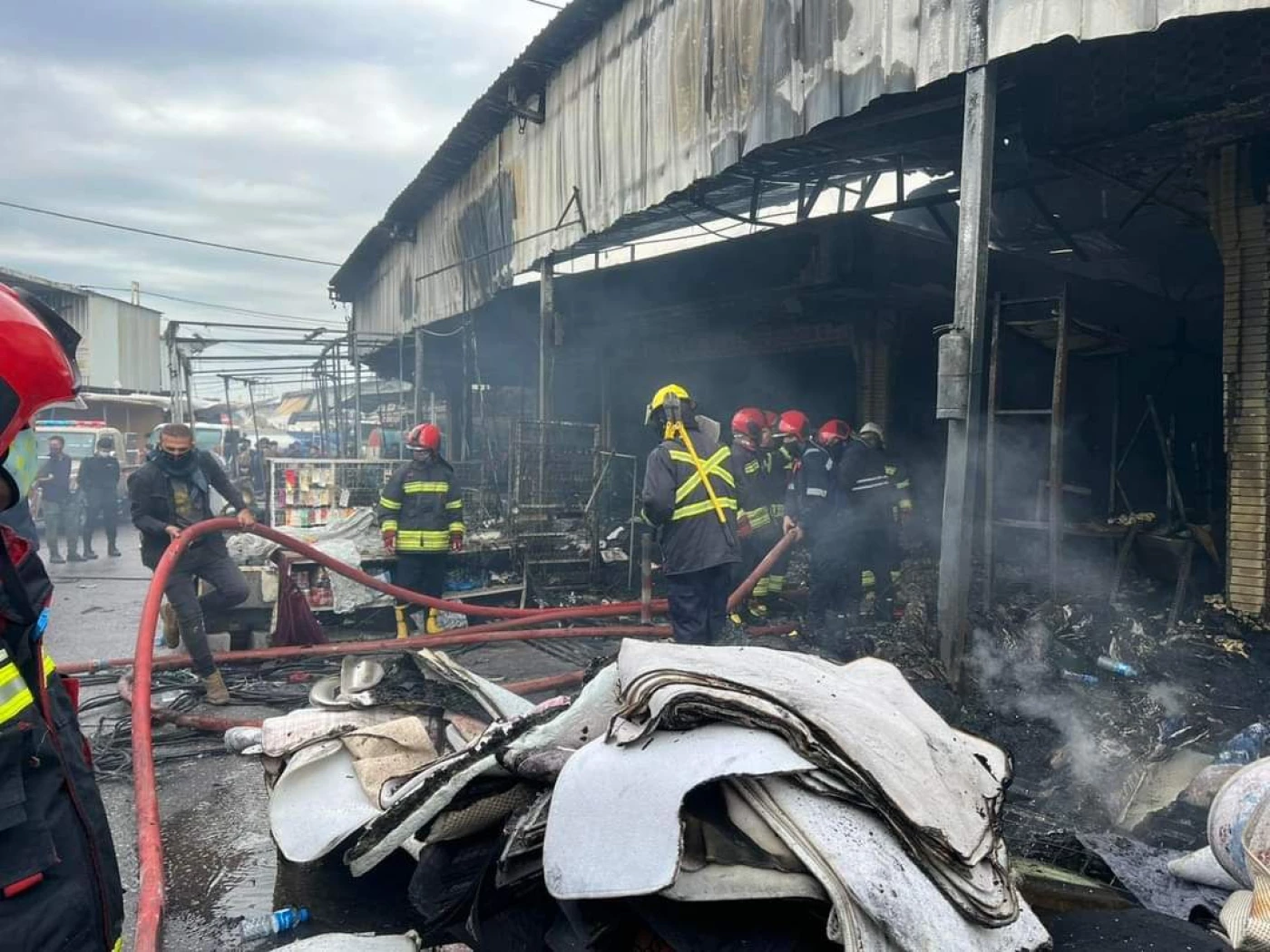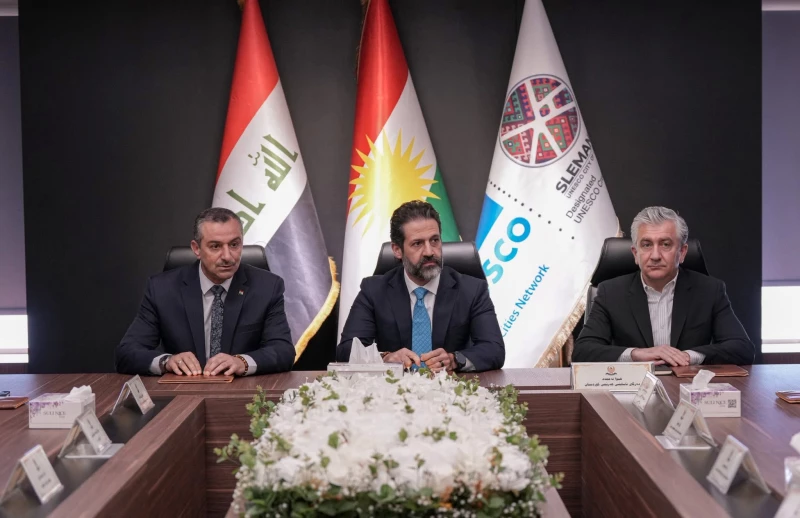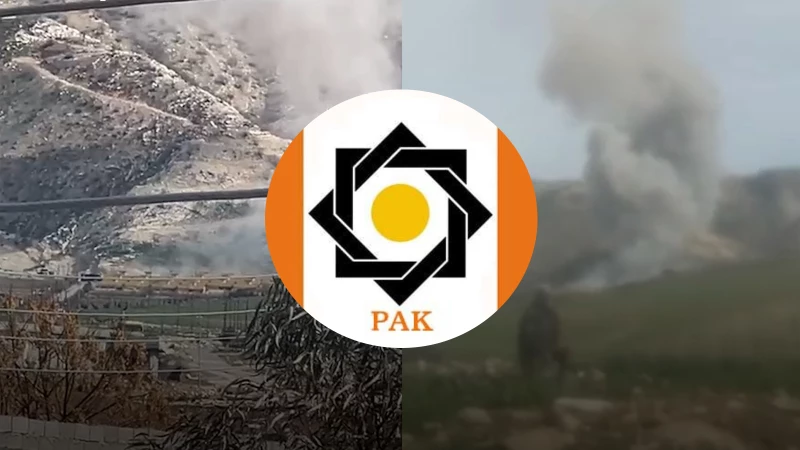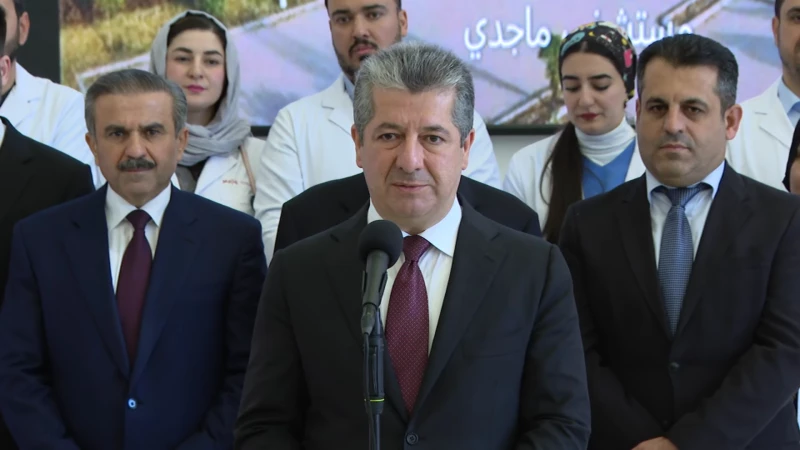The perpetrators of the marketplace fires in Erbil, Duhok, and Kirkuk earlier this year, have confessed to being members of the Kurdistan Workers’ Party (PKK) and revealed plans to target other areas across the country, including the Ceyhan oil pipeline.
Speaking to reporters on Monday, Iraq's Interior Ministry spokesperson Miqdad Miri, with three suspects in front of him, stated that the suspects were responsible for several fires that occurred around the end of 2023 and early 2024, which engulfed several marketplaces in Erbil, Kirkuk, and Duhok.
A massive fire broke out in Erbil’s historic Grand Bazaar, one of the city’s oldest markets in May. The fire followed earlier incidents in the renowned Langa bazaar (thrift market) in Erbil in April and February.
A similar incident happened in Kirkuk's historic Grand Bazaar, where a number of shops and warehouses were burned in May.
According to Miri, the suspects had used a paste-like substance, which they threw at the incident sites hours ahead. This paste would ignite several hours later, causing the fires.
“It was an organized attack, making it hard to figure out that it was planned,” he said.
The spokesperson further added that the group had plans to conduct more attacks across different provinces, attempting to target “strategic interests of one of their state enemies” and “cause chaos” in the Kurdistan Region and Iraq.
Speaking to The New Region on Monday, Miri said that the group had plans to attack the Ceyhan pipeline used to transfer oil from Kirkuk and the Kurdistan Region to the international market through Turkey’s Ceyhan port.
Since the fire incidents, PKK-affiliated media outlets have on several occasions attacked the Kurdistan Regional Government (KRG) and published stories about the grievances of those affected by the fire.
The PKK’s Roj News on Monday and ahead of the press conference reported that store owners in the damaged Erbil Grand Bazaar had gathered to call for compensation after the place caught fire “under shady circumstances”.
However, this is not the first time that the PKK had antagonized the KRG.
The PKK-affiliated Peoples' United Revolutionary Movement (HBDH) in January 2022 claimed responsibility for an explosion at the Ceyhan pipeline, halting the Kurdistan Region’s exports for several hours.
Speaking to The New Region, the Director General of the Kurdistan Region’s Interior Ministry Diwan Hemin Mirany identified one of the suspects as Hunar Fakhruldin Ahmed, whom he identified as a member of the Patriotic Union of Kurdistan’s (PUK) 70th brigade.
“These people were trained by PKK officials that came from Syria, Turkey, and Qandil, and were trained at Sulaimani, Kfri, and Sangasar,” Mirany said, adding that the investigation process was a joint effort between Iraqi and Kurdish authorities, and the perpetrators were arrested by the Iraqi intelligence in Kirkuk and Diyala provinces.
Mirany also identified another suspect as Mohammed Najat Hassan, adding that he was a member of the PUK’s counterterrorism units.
The claims of joint work between the PUK and PKK are not unprecedented.
Turkish President Recep Tayyip Erdogan in February expressed concern over the alleged PUK support for the PKK, claiming that his government has repeatedly brought up the issue and given warnings.
“We may be tolerant of many issues, but if the issue is our survival and national security, we will close the doors of tolerance and do whatever is necessary,” Erdogan told reporters.
The Turkish government blames the PUK for having strong relations with the Syrian Democratic Forces (SDF) and its military backbone, the People’s Protection Units (YPG), which Ankara labels to be the Syrian wing of the PKK despite the group on several occasions claiming that they only share ideology with the PKK.
The PUK has on several occasions denied facilitating PKK activities in the Kurdistan Region, however dozens of Turkish aerial operations in Sulaimani province claiming to target the PKK tell a different story.
Iraq also jumped on Turkey’s bandwagon of criminalizing the PKK earlier this year.
Following a Turkish government visit to Baghdad in March, Baghdad announced that they have officially categorized the PKK as a threat to its security and classified it as a banned group in the country.



 Facebook
Facebook
 LinkedIn
LinkedIn
 Telegram
Telegram
 X
X


